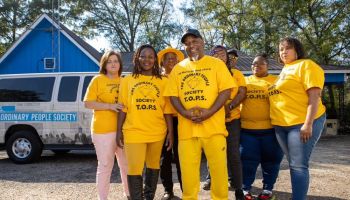Stay indoors and, if at all possible, stay in an air-conditioned place. If your home does not have air conditioning, go to the shopping mall or public library-even a few hours spent in air conditioning can help your body stay cooler when you go back into the heat. Call your local health department to see if there are any heat-relief shelters in your area.
Electric fans may provide comfort, but when the temperature is in the high 90s or above, fans will not prevent heat-related illness. Taking a cool shower or bath, or moving to an air-conditioned place is a much better way to cool off.
Drink lots of cool, non-alcoholic fluids. If you’re exercising or working, drink 2 to 4 glasses of water an hour. If you lose a lot of fluid on a hot day, sports drinks are preferred over water because they will replenish sodium.
Check with your doctor if you have health problems that require you to limit fluid intake or you’re taking diuretics – ask him/her how much you should drink while the weather is hot.
Don’t wait until you’re thirsty to drink. Drink more fluids (nonalcoholic) regardless of your activity level. Don’t rely upon thirst as an indicator of your need for water; it’s not reliable in very high heat.
Don’t drink liquids that contain caffeine, alcohol, or large amounts of sugar – these actually cause you to lose more body fluid. Also, avoid very cold drinks, because they can cause stomach cramps.
Avoid hot foods, and keep meals light. Foods (like proteins) that increase metabolic heat production also increase water loss (the body has to work harder – and use more blood – to digest heavy foods).
NEVER leave anyone in a closed, parked vehicle. Certainly don’t leave children or pets in a vehicle, even for “a few minutes.” Heat builds up rapidly to exceptionally high temperatures in a closed vehicle, and it doesn’t take much exposure to make children or pets very ill.
Pay attention to warning signs:
- Red, hot sweaty skin, cramps, lightheadedness and fatigue will occur long before heatstroke.
- Get out of the heat immediately and seek medical attention before serious harm is done.

















